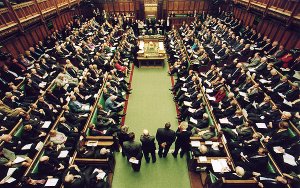After recent hikes in energy prices caused inflation to rise to a two decade high of 5.2% during the last month, financial ministers are arguing that these high inflation statistics should not be used to calculate a rise in next year’s state benefits.
If state benefits are calculated based on inflation rates next year, UK taxpayers will have to pay an accumulative 2 billion pounds in additional benefit costs during 2012. In other words, benefit costs would rise to up to three times the average wage increase rate – a situation which “would be unfair” to the average citizen, according to senior MPs.
As a solution, some have proposed that a lower rate of inflation should be used as the basis for calculating the coming year’s benefit cost rise. One proposed alternative would be to use the three-month moving average of inflation as the base statistic for calculating benefit costs, in order to protect taxpayers from sudden hikes in inflation during the crucial month of September. The Prime Minister’s spokesperson recently stated that although the cost of benefits is usually calculated based on the average inflation as recorded in September of each year, the final decision is usually not made until the autumn statement is released.
While the decision will ultimately be up to the Chancellor, it remains to be seen whether he will be open to the idea of using a different type of calculation to determine 2012 benefit costs. A statement from the Bank of England indicates that the sharp rise in inflation is a “blip,” and that inflation will return to a much more reasonable level during the next couple of months. If this proves to be true, many feel it would be a major mistake to calculate next year’s benefit costs based on the extraordinarily high current rate of inflation.





